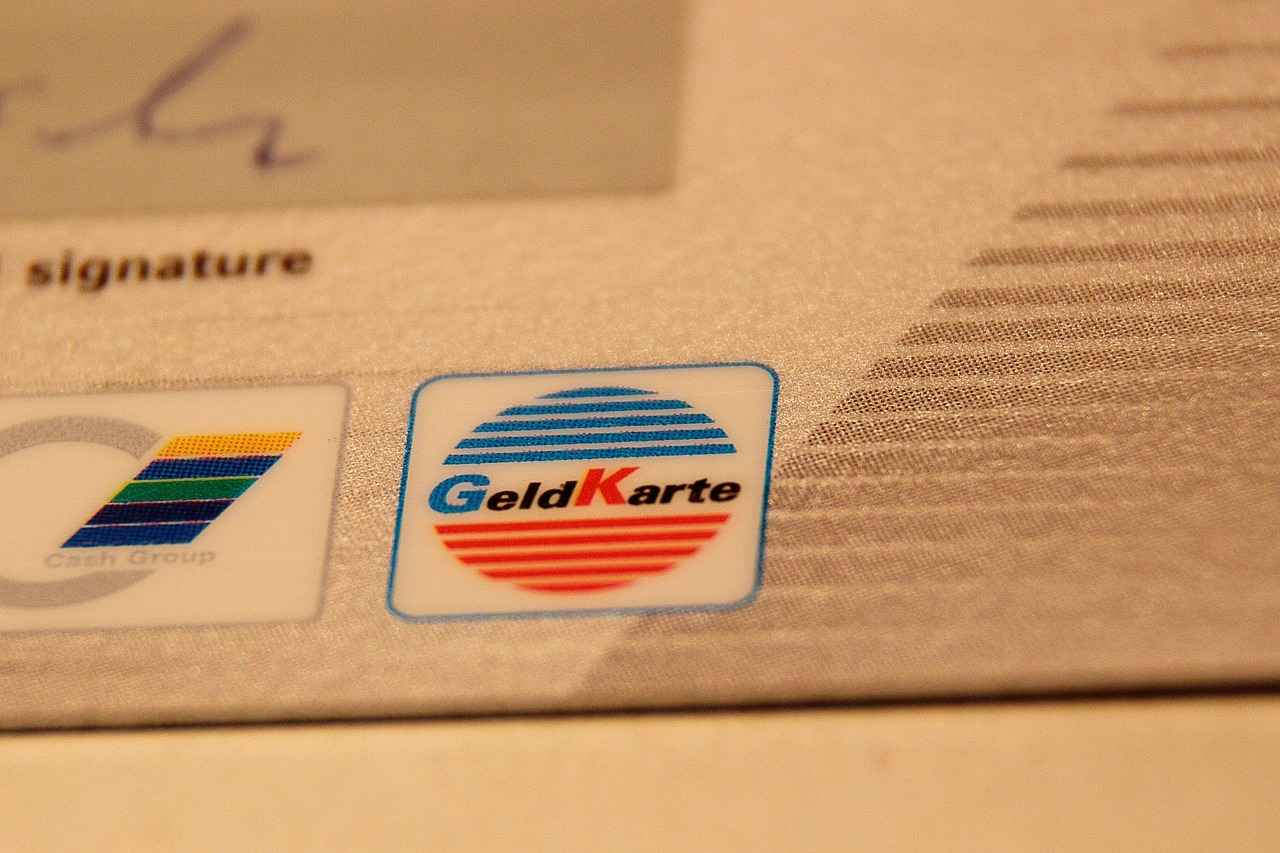This article delves into the numerous benefits of using a credit card holder for your phone, emphasizing its practicality, security, and style. Discover why this accessory is essential for modern convenience.
Convenience of Carrying Essentials
A credit card holder enables you to keep your essential cards within reach, removing the need for a bulky wallet. This convenience is ideal for those constantly on the move, simplifying daily tasks such as shopping or commuting.
Enhanced Security Features
By attaching a credit card holder to your phone, you can significantly reduce the risk of losing important cards. Many holders now come equipped with RFID protection, which safeguards your information from unauthorized scanning.
RFID Protection Explained
RFID-blocking technology effectively prevents electronic pickpocketing, ensuring that your credit card data remains secure. This feature is increasingly crucial in today’s digital landscape, where identity theft is a rising concern.
How RFID Works
RFID technology utilizes radio waves to transmit information. A credit card holder with RFID protection contains materials that block these signals, providing an additional layer of security for your cards.
Benefits of RFID Protection
The primary advantage of RFID protection is the peace of mind it offers. Knowing that your financial information is secure allows you to use your cards confidently in public spaces.
Choosing the Right Holder
Selecting a credit card holder that aligns with your lifestyle is essential. Consider factors such as size, material, and design to find the perfect fit for your needs.
Stylish Accessory for Your Phone
A credit card holder can also enhance the aesthetic appeal of your phone. Available in a variety of styles and colors, it can complement your personal style while serving a practical purpose.
Material Options
Credit card holders come in several materials, including leather, silicone, and fabric. Each material offers unique benefits, such as durability, flexibility, and ease of cleaning.
Design Choices
From minimalist designs to bold patterns, the design of your credit card holder can reflect your personality. Choose a style that resonates with you and fits seamlessly with your phone.
Cost-Effective Solution
Investing in a credit card holder can be a cost-effective solution compared to purchasing a separate wallet. It combines two essential items into one, saving you both money and space.
Comparison with Traditional Wallets
When comparing credit card holders to traditional wallets, you’ll find that holders are often more affordable and practical, especially for those who prefer a streamlined approach to carrying essentials.
Long-Term Investment
A well-made credit card holder can be a long-term investment, providing durability and functionality for years. Choosing quality materials ensures that your holder withstands daily wear and tear.
Conclusion: The Smart Choice for Modern Life
In conclusion, a credit card holder for your phone is a smart choice that combines convenience, security, and style. Embrace this practical accessory to simplify your daily routine and enhance your lifestyle.

Convenience of Carrying Essentials
A credit card holder is an innovative solution that allows you to keep your essential cards organized and easily accessible. By attaching a credit card holder to your phone, you eliminate the need for a bulky wallet, making it an ideal choice for those who are constantly on the move. This compact accessory simplifies daily tasks, allowing you to focus on what truly matters.
With a credit card holder, you can carry your essential cards such as credit cards, ID, and transit passes all in one place. This not only saves space but also streamlines your daily routine. Imagine walking into a store or boarding public transport without fumbling through a large wallet. Instead, you can effortlessly slide out the card you need, saving you precious time.
Moreover, the convenience of having your cards attached to your phone means you’re less likely to forget or misplace them. With everything in one location, you can enjoy peace of mind knowing that your important cards are always within reach. This is particularly beneficial for individuals who lead busy lifestyles, as it reduces the clutter in your bag or pockets.
Furthermore, many credit card holders come with additional features such as RFID protection, which safeguards your information from potential theft. This added layer of security not only enhances convenience but also ensures that you can carry your cards without worry.
In conclusion, a credit card holder is not just a practical accessory; it is a lifestyle choice that promotes efficiency and organization. By integrating this simple yet effective tool into your daily routine, you can enjoy the freedom of movement and the confidence of knowing your essentials are securely in place.

Enhanced Security Features
In today’s fast-paced world, ensuring the safety of your personal information is more crucial than ever. One effective way to enhance your security is by using a credit card holder attached to your phone. This innovative accessory not only keeps your essential cards within reach but also significantly minimizes the risk of losing them.
Many modern credit card holders come equipped with RFID protection, a technology designed to safeguard your sensitive information from unauthorized scanning. RFID, or Radio Frequency Identification, allows electronic devices to communicate wirelessly. While this technology is convenient for making contactless payments, it also poses a risk of electronic pickpocketing, where thieves can scan your cards without your knowledge.
By utilizing a credit card holder with RFID-blocking capabilities, you create a barrier that prevents these signals from being transmitted. This added layer of protection is particularly important as identity theft becomes increasingly prevalent. With an RFID-blocking holder, you can confidently navigate crowded areas, knowing that your financial data is secure.
How RFID Protection Works
- RFID technology uses radio waves to transmit information between devices.
- Credit card holders with RFID protection contain special materials that block these signals.
- This ensures that your credit card data remains safe from unauthorized access.
Investing in a credit card holder with RFID protection not only provides peace of mind but also enhances your overall convenience. You can streamline your daily activities by keeping your essential cards close at hand, eliminating the need for a bulky wallet. This practicality is especially appealing for those who lead busy lifestyles.
In conclusion, a credit card holder with enhanced security features is an essential accessory in today’s digital age. It combines functionality with safety, making it a wise investment for anyone looking to protect their personal information while enjoying the convenience of having their cards readily available.
RFID Protection Explained
In an era where digital transactions are increasingly prevalent, the importance of protecting your sensitive information cannot be overstated. RFID-blocking technology has emerged as a crucial feature in safeguarding your financial data from potential threats. This technology is designed to prevent unauthorized access to your credit card information, effectively reducing the risk of electronic pickpocketing.
RFID, or Radio Frequency Identification, utilizes radio waves to transmit data between a reader and a card. While this technology enables quick and convenient transactions, it also opens the door for malicious actors to capture your information without physical contact. This is where RFID-blocking technology comes into play. By incorporating specialized materials within credit card holders, these products create a protective barrier that disrupts the signals used in RFID transactions.
The benefits of RFID protection extend beyond mere security. With this technology, users can enjoy peace of mind knowing that their financial data is shielded from prying eyes. In crowded places like public transportation or busy streets, the risk of identity theft is heightened. RFID-blocking holders empower individuals to confidently carry their cards without the constant worry of data breaches.
Furthermore, as identity theft becomes more sophisticated, the demand for RFID protection is on the rise. Many consumers are now prioritizing security features when selecting accessories for their devices. Investing in a credit card holder with RFID-blocking capabilities is not just a trend; it’s a practical response to the evolving landscape of digital security.
In conclusion, understanding RFID protection is essential for anyone looking to secure their financial information in today’s digital age. By opting for a credit card holder equipped with this technology, you can take proactive steps to safeguard your identity and ensure that your data remains confidential.
How RFID Works
Understanding RFID Technology: A Closer Look
In today’s fast-paced world, security has become a top priority, especially when it comes to protecting sensitive information. One of the most effective technologies in safeguarding personal data is RFID (Radio Frequency Identification). This article delves into how RFID works, its applications, and its significance in enhancing security.
What is RFID?
RFID technology employs radio waves to transmit data between a reader and a tag attached to an object. The tag, which can be passive or active, contains information that can be read by the RFID reader. This technology is widely used in various industries, including retail, logistics, and even healthcare.
How Does RFID Work?
- Components of RFID: An RFID system consists of three main components: an RFID tag, an RFID reader, and an antenna. The tag contains a microchip and an antenna, while the reader sends out radio waves to communicate with the tag.
- Data Transmission: When the RFID reader emits radio waves, the tag receives these signals and responds by transmitting its stored information back to the reader. This process is instantaneous and eliminates the need for direct line-of-sight scanning, unlike traditional barcode systems.
- Types of RFID Tags: There are two primary types of RFID tags: passive and active. Passive tags do not have a power source and rely on the reader’s signal to operate, while active tags have their own power source, allowing for greater range and functionality.
Applications of RFID Technology
RFID technology is utilized in various sectors, enhancing efficiency and security. For instance, in retail, it streamlines inventory management, while in healthcare, it ensures accurate tracking of medical equipment and patient records.
Conclusion: The Importance of RFID in Modern Security
Understanding how RFID works is crucial in today’s digital age, where protecting personal information is paramount. By using RFID-blocking accessories, such as credit card holders, individuals can safeguard their financial data from unauthorized access, making RFID technology an essential component of modern security solutions.
Benefits of RFID Protection
In today’s fast-paced digital world, the security of personal information is more important than ever. With the rise of contactless payment methods, many consumers are turning to RFID protection as a means to safeguard their financial data. Here, we explore the numerous advantages of utilizing RFID-blocking technology in credit card holders.
- Peace of Mind: One of the most significant benefits of RFID protection is the peace of mind it offers. Knowing that your financial information is secure allows you to use your cards confidently, especially in crowded public spaces.
- Prevention of Unauthorized Scanning: RFID technology can be exploited by thieves using handheld devices to steal your card information without your knowledge. RFID-blocking holders prevent this unauthorized scanning, adding an essential layer of protection.
- Convenience and Accessibility: RFID-protected card holders are designed to keep your essential cards organized and easily accessible. This means you can quickly retrieve your card without fumbling through a bulky wallet, making transactions smoother.
- Durability: Many RFID-blocking holders are made from high-quality materials that not only protect your cards but also ensure they last longer. Investing in a durable holder can save you money in the long run.
- Stylish Options: RFID-blocking card holders come in various designs and materials, allowing you to choose one that reflects your personal style while providing security. From sleek leather to vibrant silicone, there’s something for everyone.
In conclusion, the integration of RFID protection into your daily carry items is not just a trend but a necessity in the modern world. By choosing an RFID-blocking card holder, you can enjoy the freedom of using your cards without the constant worry of data theft. Embrace this technology and enhance both your security and convenience.
Choosing the Right Holder
is essential for anyone looking to streamline their daily carry while ensuring their essentials are secure and accessible. With numerous options available in the market, it’s important to consider various factors that align with your lifestyle and preferences.
- Size: The size of the credit card holder should match your needs. If you often carry multiple cards, a larger holder may be necessary. Conversely, if you prefer a minimalist approach, a slim holder that fits snugly against your phone may be ideal.
- Material: The material of your credit card holder can significantly impact its durability and aesthetic appeal. Common materials include:
- Leather: Offers a classic look and is typically durable, but may require more maintenance.
- Silicone: Known for its flexibility and ease of cleaning, silicone holders are often lightweight and water-resistant.
- Fabric: Provides a variety of designs and patterns, allowing for personal expression, though they may not be as durable as leather or silicone.
- Design: The design of your credit card holder should reflect your personal style. From sleek and modern to vibrant and playful, the right design can complement your phone and make a fashion statement.
Additionally, consider the functionality of the holder. Some holders come with added features such as RFID protection, which can safeguard your cards against electronic theft. This is particularly important in today’s digital age, where identity theft is a growing concern.
Ultimately, selecting the right credit card holder is about finding a balance between style and functionality. By taking the time to evaluate your needs and preferences, you can find a holder that not only looks great but also enhances your everyday convenience.
In conclusion, a well-chosen credit card holder can simplify your life, offering a perfect blend of practicality and style. Make sure to assess your lifestyle requirements and select a holder that will serve you well for years to come.

Stylish Accessory for Your Phone
A credit card holder is not just a functional accessory; it also adds a touch of style to your phone. With a plethora of options available in various designs and colors, you can easily find one that reflects your unique personality and complements your overall aesthetic.
Versatility in Design
From sleek and minimalist to vibrant and patterned, the design choices for credit card holders are virtually limitless. This versatility allows you to express your individuality while maintaining a practical solution for carrying essentials.
Material Choices
- Leather: Offers a classic and sophisticated look, providing durability and a premium feel.
- Silicone: Lightweight and flexible, making it easy to attach and detach from your phone.
- Fabric: Available in various colors and patterns, fabric holders can be fun and customizable.
Enhancing Your Phone’s Appeal
By choosing a credit card holder that matches your phone’s color or design, you can create a cohesive look. Additionally, some holders come with features like embossed logos or unique patterns that can make your phone stand out even more.
Practicality Meets Fashion
Not only do credit card holders enhance the visual appeal of your phone, but they also serve a practical purpose. They allow you to keep essential cards, such as your ID and credit cards, within easy reach. This convenience is especially beneficial for those who prefer to travel light, eliminating the need for a bulky wallet.
Conclusion
In summary, a credit card holder is an excellent way to elevate your phone’s style while providing a practical solution for carrying your essentials. With various materials and designs available, you can easily find the perfect holder that suits your lifestyle and personal taste.
Material Options
When selecting a credit card holder for your phone, the choice of material plays a significant role in determining its overall functionality and appeal. Here, we will explore the various materials commonly used in credit card holders, highlighting their unique benefits and characteristics.
- Leather: Leather credit card holders are synonymous with luxury and durability. They offer a classic aesthetic that appeals to many users. Leather is not only robust but also develops a unique patina over time, enhancing its visual appeal. Additionally, it provides a level of flexibility that makes it easy to insert and remove cards.
- Silicone: Silicone holders are known for their flexibility and lightweight nature. They are often available in a variety of vibrant colors and designs, making them a fun choice for those who want to express their personality. Silicone is also easy to clean, making it a practical option for everyday use.
- Fabric: Fabric credit card holders can offer a unique blend of style and functionality. They are often made from materials like nylon or canvas, which provide durability while being lightweight. Fabric holders can come in various patterns and textures, allowing for personalized expression while maintaining a practical approach.
- Metal: For those seeking a more modern and sleek look, metal credit card holders are an excellent choice. They offer superior protection against bending and breaking, and many come with RFID-blocking technology to safeguard your information. Metal holders are often designed with a minimalist aesthetic that appeals to tech-savvy users.
In conclusion, the material of your credit card holder can significantly influence its durability, style, and practicality. Whether you prefer the classic elegance of leather, the playful nature of silicone, the unique patterns of fabric, or the modernity of metal, there is a credit card holder out there that perfectly suits your needs.
Design Choices
play a crucial role in how a credit card holder complements your phone. With a variety of options available, selecting a design that reflects your personality and lifestyle can enhance both functionality and style.
From minimalist designs to bold patterns, the aesthetic appeal of your credit card holder can make a statement. Here are some popular design choices to consider:
- Minimalist Designs: These holders often feature sleek lines and simple colors. Perfect for those who prefer a clean and modern look, minimalist designs can easily blend with any phone case.
- Bold Patterns: If you want to express your unique personality, opt for holders with eye-catching patterns or vibrant colors. These can add a fun element to your phone and showcase your individual style.
- Textured Finishes: Materials like leather or fabric with textured finishes can provide a sophisticated look. Textured holders not only feel good to hold but also add depth to your phone’s overall appearance.
- Customizable Options: Some brands offer personalized holders where you can add your initials or a favorite design. This customization makes your holder truly one-of-a-kind.
When choosing a design, consider how it will fit with your daily routine and personal style. A well-chosen credit card holder not only serves a practical purpose but also enhances your overall aesthetic. Remember, your phone is an extension of your personality, and your credit card holder should reflect that.
In conclusion, selecting the right design for your credit card holder is essential. It can be a reflection of your style while providing the functionality you need. Explore the various options available and choose a holder that resonates with you.

Cost-Effective Solution
When considering ways to streamline your everyday carry, investing in a credit card holder proves to be a . This practical accessory merges the functionality of a wallet and the convenience of a phone case, making it an ideal choice for those looking to save both money and space.
Unlike traditional wallets, which can be bulky and cumbersome, a credit card holder is designed to be sleek and compact. This feature is particularly beneficial for individuals who prefer a minimalist approach to their personal items. By consolidating your essential cards into a single holder, you eliminate the need for a separate wallet, which can often be more expensive and less convenient.
Comparison with Traditional Wallets
| Feature | Credit Card Holder | Traditional Wallet |
|---|---|---|
| Size | Compact | Bulky |
| Price | More Affordable | Higher Cost |
| Functionality | Multi-purpose | Limited |
Furthermore, many credit card holders are designed with durability in mind. Made from high-quality materials, they can withstand daily wear and tear, providing a long-term solution that traditional wallets often lack. By choosing a well-made card holder, you are making a wise investment that can last for years, ultimately saving you money in the long run.
Long-Term Investment
In addition to their cost-effectiveness, credit card holders often come with features that enhance their functionality, such as RFID protection. This added layer of security safeguards your sensitive information from unauthorized scanning, making them not only a practical choice but a secure one as well.
In summary, opting for a credit card holder instead of a traditional wallet is a smart financial decision. By combining essential features into one compact accessory, you save money, space, and enjoy added security. Make the switch today and experience the benefits for yourself!
Comparison with Traditional Wallets
When evaluating the practicality of credit card holders versus traditional wallets, it’s essential to consider several key factors that highlight the advantages of credit card holders. These holders are designed to be more affordable and efficient, making them an ideal choice for those who prefer a streamlined approach to carrying their essentials.
Affordability
Credit card holders typically cost less than traditional wallets, especially when you factor in the various features they offer. Many holders combine functionality with style, allowing users to save money while enjoying a chic accessory. This affordability makes them accessible to a broader audience, catering to both budget-conscious individuals and those looking for a practical solution.
Practicality
One of the most significant benefits of credit card holders is their compact design. Unlike bulky wallets that can be cumbersome to carry, credit card holders are lightweight and can easily fit into pockets or small bags. This practicality is especially beneficial for individuals who are always on the move, as it simplifies daily tasks such as running errands or traveling.
Streamlined Essentials
Credit card holders allow users to carry only the essentials—such as credit cards, IDs, and some cash—without the excess bulk of a traditional wallet. This streamlined approach not only enhances convenience but also encourages users to minimize what they carry, leading to a more organized lifestyle.
Style and Customization
Additionally, credit card holders come in a variety of styles, colors, and materials, allowing individuals to express their personal style. Whether you prefer a sleek leather finish or a vibrant silicone option, there is a credit card holder that can complement your aesthetic.
Conclusion
In summary, when comparing credit card holders to traditional wallets, it’s clear that holders offer a more affordable and practical solution. Their compact design, emphasis on essentials, and stylish options make them an excellent choice for anyone looking to simplify their daily carry.
Long-Term Investment
Investing in a high-quality credit card holder is more than just a purchase; it is a commitment to practicality and style that can serve you well for years to come. A well-crafted credit card holder is designed not only to protect your essential cards but also to withstand the daily rigors of life. When you choose a holder made from premium materials, you are ensuring its longevity and durability, which can save you money in the long run.
One of the key benefits of opting for a quality credit card holder is its durability. Materials such as genuine leather, high-grade silicone, or sturdy fabric are designed to resist wear and tear. Unlike cheaper alternatives that may fray or break after a short period, a well-made holder will maintain its form and function, allowing you to use it confidently without the need for frequent replacements.
Additionally, investing in a credit card holder can enhance your overall organization. With designated slots for your cards, you can easily access what you need without rummaging through a cluttered wallet. This functionality is particularly beneficial for those with busy lifestyles, as it streamlines the process of carrying essentials.
Furthermore, a quality credit card holder can also be a stylish accessory that complements your personal aesthetic. Available in various colors and designs, it allows you to express your individuality while maintaining a professional appearance. This dual functionality of style and practicality makes it a wise investment.
In conclusion, selecting a well-made credit card holder is a choice that pays off over time. By ensuring durability and enhancing your daily convenience, it stands as a testament to smart consumerism. When you prioritize quality, you not only safeguard your cards but also invest in a product that will serve you reliably for years to come.

Conclusion: The Smart Choice for Modern Life
In today’s fast-paced world, the importance of **streamlined solutions** cannot be overstated. A credit card holder for your phone is not just a trend; it is a **practical accessory** that addresses multiple needs at once. By merging the functionality of a wallet with the convenience of a smartphone, this accessory offers a seamless way to manage your essentials.
One of the most appealing aspects of a credit card holder is its **convenience**. Instead of rummaging through a bulky wallet, you can easily access your cards directly from your phone. This is especially beneficial for those who lead an active lifestyle, as it simplifies tasks such as running errands or attending events.
Moreover, the **security features** offered by many credit card holders enhance peace of mind. With the rise of electronic theft, holders equipped with **RFID-blocking technology** are invaluable. This technology prevents unauthorized scanning of your cards, ensuring that your sensitive information remains protected.
When it comes to **style**, credit card holders come in a variety of designs and materials, allowing you to express your personal taste. Whether you prefer a sleek leather finish or a vibrant silicone option, there is a holder that can complement your phone while also serving its purpose effectively.
Additionally, investing in a credit card holder can be a **cost-effective solution**. By combining the functionality of a wallet and a phone case, you save both money and space. This makes it an ideal choice for anyone looking to minimize clutter without sacrificing quality.
In summary, a credit card holder for your phone is a **smart choice** that combines **convenience**, **security**, and **style**. By embracing this accessory, you can simplify your daily routine and enhance your overall lifestyle. Make the switch today and experience the benefits for yourself!
Frequently Asked Questions
- What is a credit card holder for a phone?
A credit card holder for a phone is a sleek accessory that attaches to your phone, allowing you to store essential cards like credit cards, IDs, and more. It eliminates the need for a bulky wallet, making it perfect for those on the go.
- How does RFID protection work?
RFID protection uses special materials to block radio waves that transmit information from your credit cards. This technology prevents unauthorized scanning, keeping your financial data safe from electronic pickpockets.
- Are credit card holders stylish?
Absolutely! Credit card holders come in a variety of materials, colors, and designs. Whether you prefer a minimalist look or something more vibrant, you can find a holder that matches your personal style while serving a practical purpose.
- Can a credit card holder save me money?
Yes! Investing in a credit card holder can be a cost-effective solution compared to buying a separate wallet. It combines two essential items into one, saving you both money and space in your bag or pocket.
- How do I choose the right credit card holder?
When choosing a credit card holder, consider factors like size, material, and design. Think about your lifestyle and what features are most important to you, such as durability or ease of cleaning.














